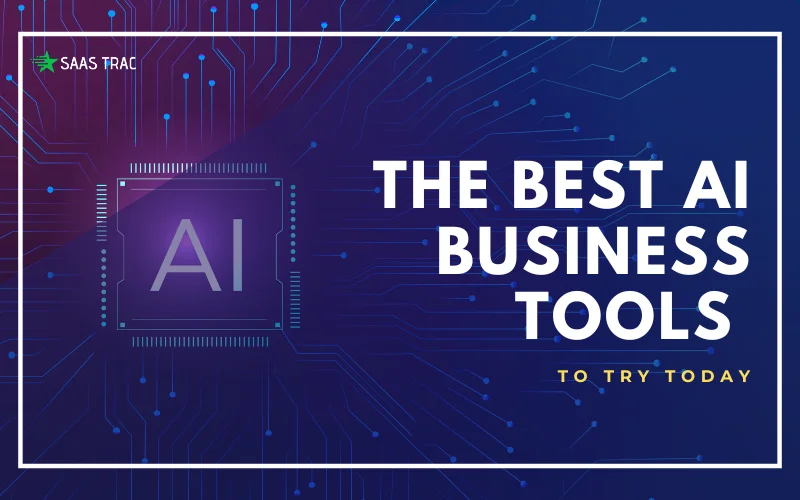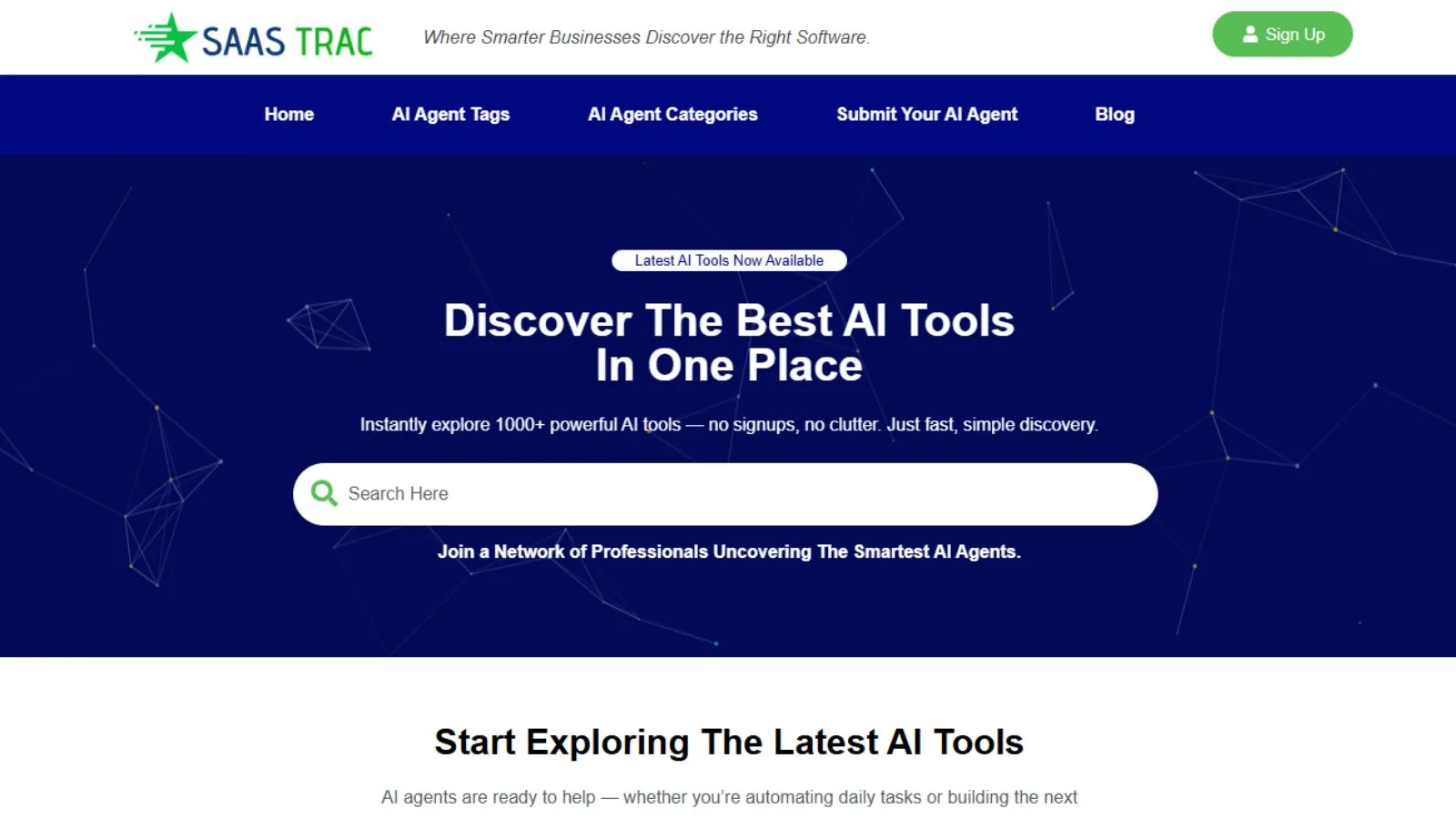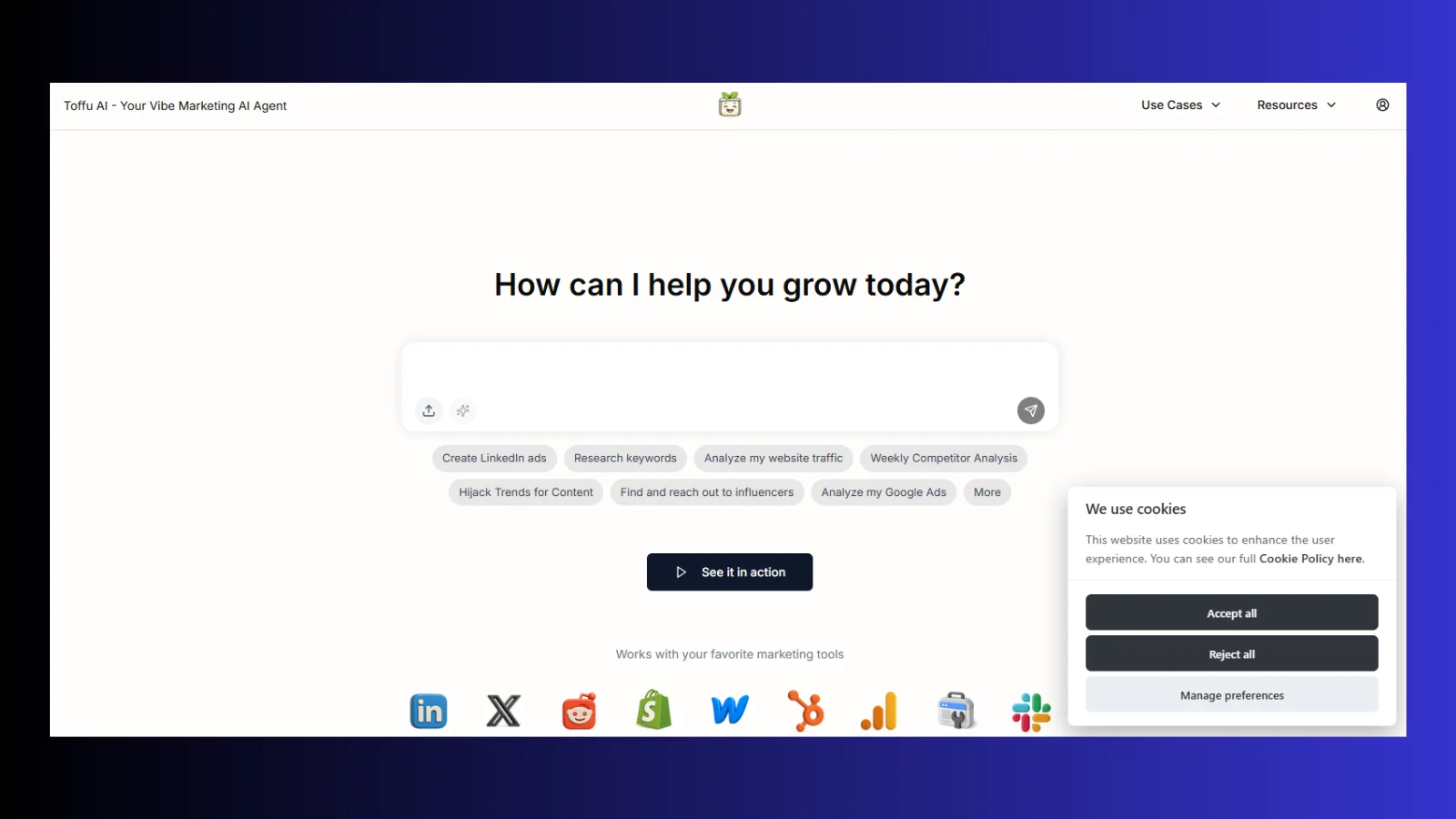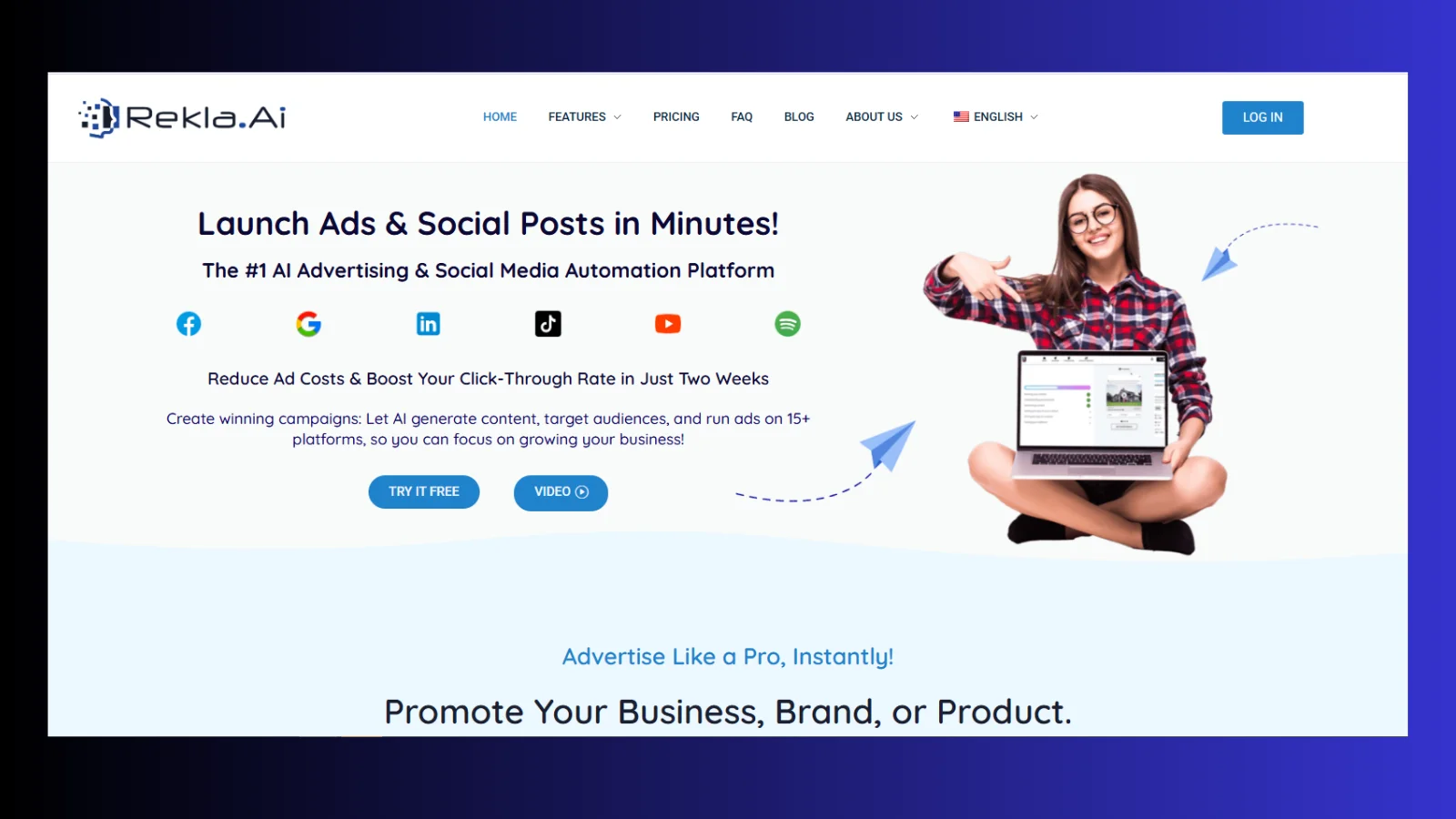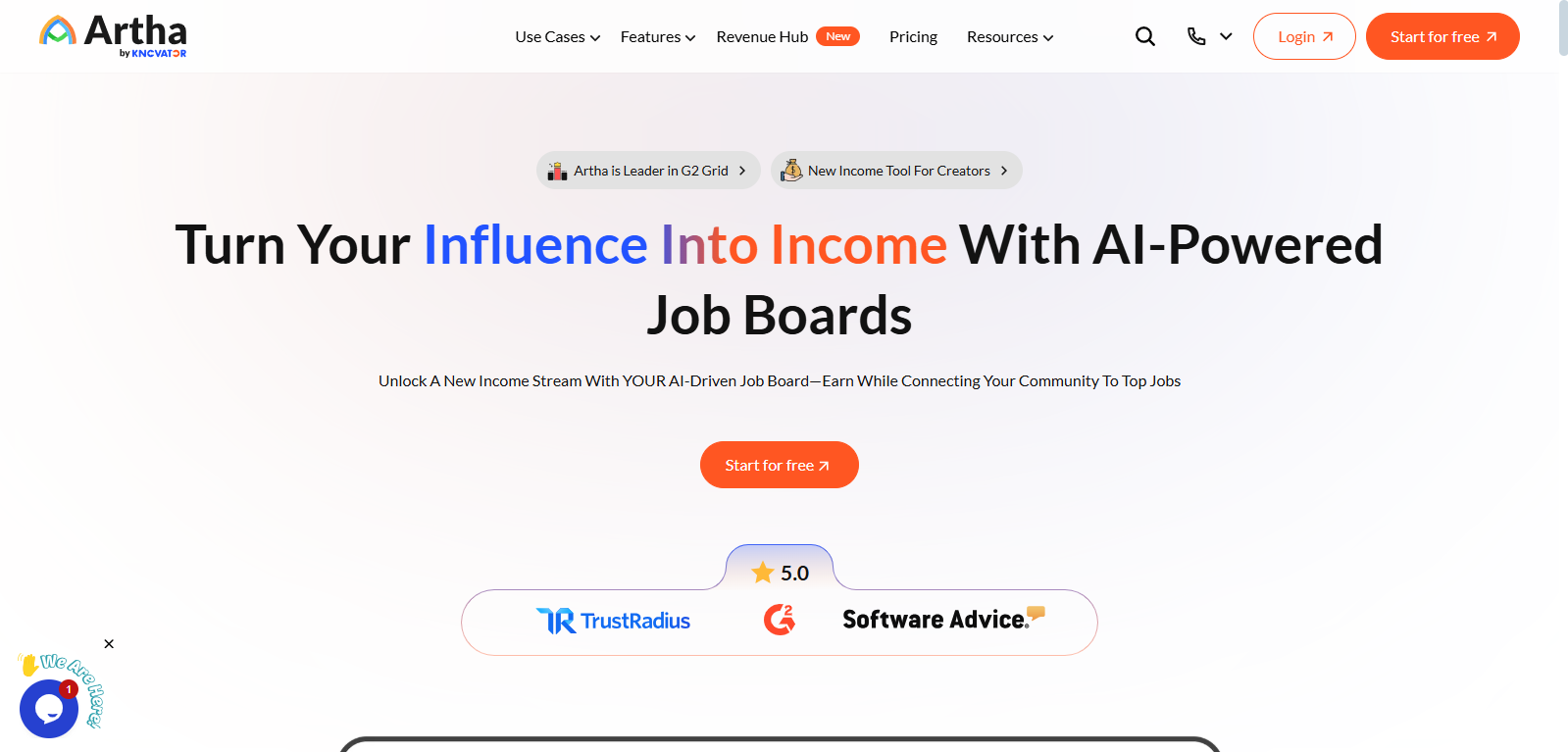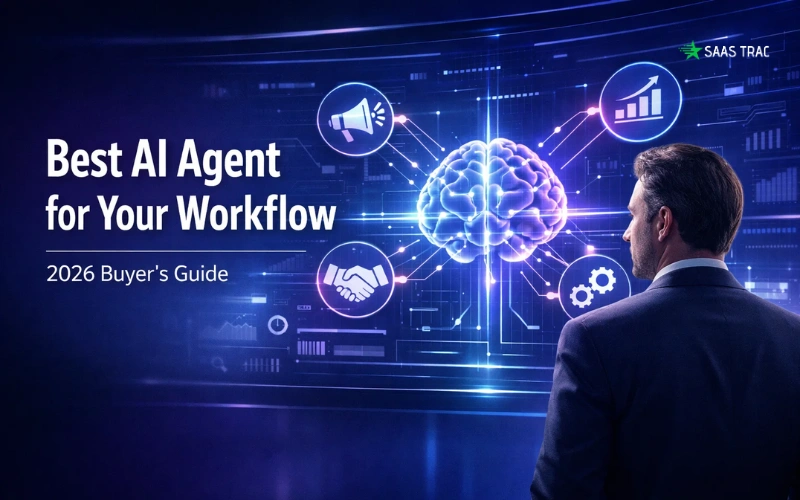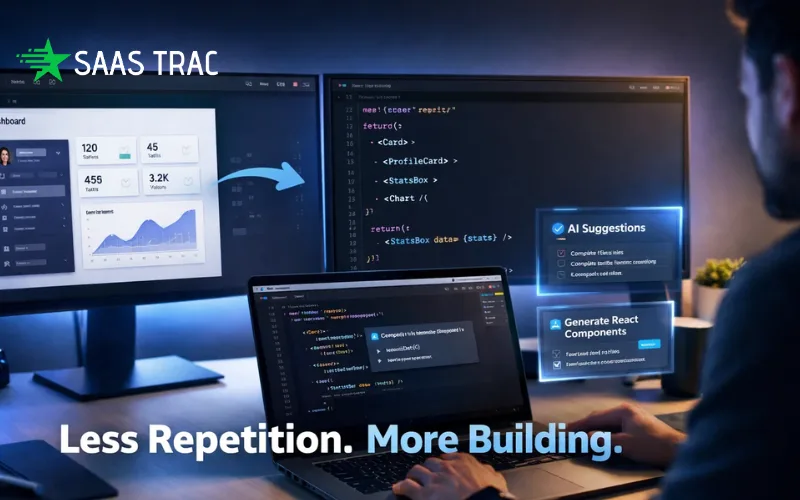Businesses today rely on AI business tools to stay competitive and efficient. These tools help automate tasks, analyze data, and improve decision-making. Companies of all sizes use them to save time and reduce errors. From managing projects to handling customer interactions, the right tools make work easier. Many options exist, and choosing the best one can be overwhelming.
In this blog, we will highlight the top Artificial business tools you can try today. Each tool offers unique features to boost productivity and streamline operations. It does not make a difference if you run a small business or a large enterprise; these tools help you work smarter. Let’s explore these solutions and see how they transform your workflow.
What Is AI Used For In Business?
In business, data drives decisions. Companies track competitors, study market trends, and listen to customer feedback before making a move. Doing all this manually is time-consuming and often inaccurate. This is where artificial intelligence steps in. It processes large amounts of information quickly and helps teams act with confidence.
From marketing to operations, AI makes tasks faster and more efficient. Businesses adopt AI marketing tools to automate research, improve customer service, and manage content creation without wasting time.
What Are The Common Uses of AI In Business?
Businesses today use AI across different departments. Some of the most common applications include:
- Sentiment Analysis
Companies use AI to scan social media and customer reviews. This helps them understand public opinion and improve their products.
- Competitor Intelligence
AI automates competitor tracking. It generates timely reports so businesses can adjust strategies and stay ahead.
- Content Creation
From blogs to ad copy, AI creates SEO-optimized content. It helps businesses keep up with growing content demands.
- Video and Media Editing
Tools powered by AI simplify video production and design tasks, making creative work faster and more affordable.
- Automated Reporting
Teams use AI to collect and present data. Reports that once took hours now take minutes to generate.
Even AI tools for small business offer these benefits, making advanced automation accessible at lower costs.
But, How Can You Find the Right Tools?
Companies often use more than one AI-powered platform. Different tools serve unique purposes, but together, they improve workflows. Many apps now include automation and machine learning to deliver results at scale. Platforms like SaasTrac’s AI Agent Directory make it easier to explore and choose from trusted solutions. With the right AI business tools, companies stay competitive and work smarter with less effort.
Read More
The Best AI Tools For Business To Try Today
Businesses today rely on automation and data-driven decisions. AI enables this by accelerating tasks and enhancing accuracy. From content marketing to recruitment and advertising, the right software helps companies save time and grow faster. With numerous platforms available, it can be hard to know where to start. That’s why exploring the best AI business tools is important.
1. SEObot – Hands-Free SEO Content Engine
SEObot is for founders, marketers, and startups looking to get traffic without hiring large teams. It creates and publishes SEO-optimized articles automatically.
Key Features:
- Automated content strategy with keyword targeting
- Weekly structured articles with media and internal links
- Multilingual SEO support for 50+ languages
- Integrations with WordPress, Shopify, and more
Use Cases:
- Launching SEO blogs for SaaS or e-commerce
- Growing organic traffic with long-tail content
- Scaling content without building big teams
SEObot acts like a 24/7 publishing assistant. It’s one of the most powerful AI business tools for brands wanting to get their websites into traffic engines.
2. Scalenut – All-in-One SEO Growth Platform
Scalenut simplifies SEO by merging keyword research, optimization, and automation into one dashboard. Businesses use it to plan strategies and scale content creation.
Highlights:
- SEO Sprint Studio for topic clusters and keyword maps
- Smart Draft Builder for full blogs with SEO outlines.
- Rank Optimizer to fix underperforming pages
- Insight Engine for competitor and keyword analysis
Use Cases:
- Building consistent SEO blogs
- Auditing old content for performance gaps
- Growing multiple websites with ease
Scalenut is designed to scale with your business. For companies searching for reliable AI business tools, it delivers clarity and measurable results.
3. Recruit CRM – Smarter Hiring Made Simple
Recruit CRM combines applicant tracking and customer relationship management. It is made for recruiters and staffing agencies that want faster placements.
Features:
- AI-powered candidate matching
- Resume parsing and profile structuring.
- Email, calendar, and workflow automation
- Client and candidate portals
Use Cases:
- Staffing agencies managing global clients
- Freelance recruiters handling multiple roles
- Startups scaling their first teams
Recruit CRM saves hours of manual work and improves accuracy. It shows how AI business tools can transform recruitment and HR.
4. Toffu AI – Your Marketing Teammate
Toffu AI works as a conversational agent for marketing teams. Instead of dashboards, users type their goals, and Toffu executes campaigns.
Highlights:
- Campaign planning and execution via chat
- Real-time keyword and competitor analysis
- Automated marketing playbooks
- Multi-platform control for ads and outreach
Use Cases:
- Launching LinkedIn ad campaigns
- Running competitor scans
- Discovering influencers and PR opportunities
For lean teams, Toffu feels like an extra teammate. It is one of the most flexible AI business tools for B2B growth.
5. Rekla AI – Ads on Autopilot
Rekla AI is an ad automation platform built by former Google and Meta experts. It creates and optimizes ad campaigns across more than 15 platforms.
Features:
- SmartLaunch assistant for instant ad creatives
- Budget control with AutoPilot campaigns
- Cross-platform analytics from one dashboard
- Content optimizer for real-time ad testing
Use Cases:
- Local businesses running geo-targeted ads
- E-commerce stores scaling campaigns
- Agencies managing multiple clients.
Rekla AI makes ad management easier and more efficient. For businesses with limited budgets, even AI tools for small business like Rekla AI bring huge returns.
6. Artha AI – Smarter Job Discovery
Artha AI is a job board powered by intelligent filtering. It connects professionals with remote-first and tech-focused opportunities.
Highlights:
- AI-driven job matching
- Curated roles in Web3, AI, and startups
- Instant discovery without complex filters
- Saved jobs and application tracking
Use Cases:
- Developers looking for remote work
- Designers and freelancers seeking projects
- Professionals exploring startup opportunities
Artha cuts noise and delivers meaningful roles faster. It proves that AI business tools are not just for companies but also for individuals growing their careers.
Each tool serves a unique purpose—whether it’s SEO, recruitment, ads, or job discovery. Businesses often need more than one solution to cover different functions. Exploring platforms in one place makes the process easier. That’s where SaasTrac’s AI Agent Directory becomes valuable. It lists trusted tools across categories so companies can choose the right fit with confidence. With the right AI business tools, businesses can scale smarter and faster.
The Bottom Line
AI is no longer a luxury, ai is necessity for businesses that want to stay competitive. From SEO and content creation to recruitment, advertising, and job discovery, the tools we explored show how artificial intelligence can simplify complex processes and deliver measurable results.
By selecting the right AI tools for business automation, companies save time, cut costs, and focus more on growth. Whether you run a startup or a large enterprise, adopting these solutions today helps you work smarter and prepare for the future of business.
Frequently Asked Questions-
Q: What is the 30% rule for AI?
The 30% rule suggests keeping a balance between automation and human involvement. In practice, AI and automation manage about 70% of a task or workflow, while people handle the remaining 30%. This approach ensures efficiency without losing the value of human judgment and creativity.
Q: What are the 4 models of AI?
The four key models of AI are Reactive Machines, Limited Memory AI, Theory of Mind AI, and Self-Awareness AI. Reactive Machines work only in the present without memory. Limited Memory AI can learn from past data for a short period. Theory of Mind AI aims to understand human emotions and intentions. Self-Awareness AI represents the most advanced stage, where systems would have consciousness and self-understanding.


